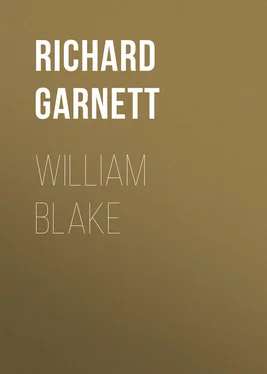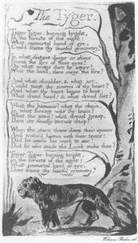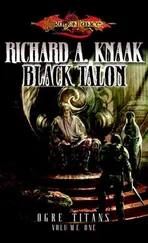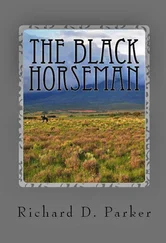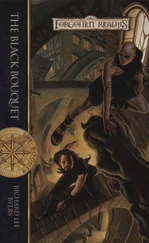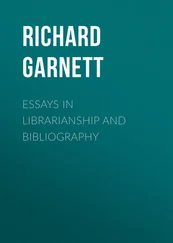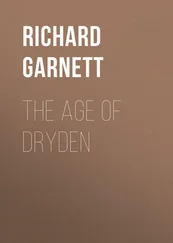Richard Garnett - William Blake
Здесь есть возможность читать онлайн «Richard Garnett - William Blake» — ознакомительный отрывок электронной книги совершенно бесплатно, а после прочтения отрывка купить полную версию. В некоторых случаях можно слушать аудио, скачать через торрент в формате fb2 и присутствует краткое содержание. Жанр: foreign_antique, foreign_prose, на английском языке. Описание произведения, (предисловие) а так же отзывы посетителей доступны на портале библиотеки ЛибКат.
- Название:William Blake
- Автор:
- Жанр:
- Год:неизвестен
- ISBN:нет данных
- Рейтинг книги:3 / 5. Голосов: 1
-
Избранное:Добавить в избранное
- Отзывы:
-
Ваша оценка:
- 60
- 1
- 2
- 3
- 4
- 5
William Blake: краткое содержание, описание и аннотация
Предлагаем к чтению аннотацию, описание, краткое содержание или предисловие (зависит от того, что написал сам автор книги «William Blake»). Если вы не нашли необходимую информацию о книге — напишите в комментариях, мы постараемся отыскать её.
William Blake — читать онлайн ознакомительный отрывок
Ниже представлен текст книги, разбитый по страницам. Система сохранения места последней прочитанной страницы, позволяет с удобством читать онлайн бесплатно книгу «William Blake», без необходимости каждый раз заново искать на чём Вы остановились. Поставьте закладку, и сможете в любой момент перейти на страницу, на которой закончили чтение.
Интервал:
Закладка:
What manner of man was he to whose shade the world has made this practical apology?
William Blake was born on November 28th, 1 1 November 20 has been stated as the date, but the above is shown to be correct by the horoscope drawn for November 28, 7.45 P.M. in Urania, or the Astrologer’s Chronicle , 1825, published therefore in Blake’s lifetime, and undoubtedly derived from Varley.
1757, at 28, Broad Street, Golden Square. By a singular coincidence this was the very year which a still more celebrated mystic, Swedenborg, had announced as that of the Last Judgment in a spiritual sense, which was by no means to preclude the world from going on in externals pretty much as usual. Blake’s father, James Blake, was a hosier in moderately prosperous circumstances, whose father is stated by Blake’s most elaborate commentators, Messrs. Ellis and Yeats, to have been originally named O’Neil, and to have assumed his wife’s name as a means of escape from pecuniary difficulties. This wife, however, was not the mother of James. This genealogy is not supported by any strong authority, and is at variance with another, also indifferently supported, according to which the artist’s family were connected with the admiral’s. We must leave the question where we find it, merely remarking that Blake’s parents were certainly Protestants, and that we can detect no specifically Irish trait in his character or his works. He had three brothers – one, James, mild and unassuming like his father; another, Robert, who died young, apparently with more affinity to William; the third, John, a scapegrace. There was also a sister who never married, and is described as a thorough gentlewoman, reserved and proud. None of the family except William and Robert seem to have shown any artistic talent. With William it must have been precocious, for, ere he had attained the age of ten, his father, who as a small tradesman might rather have been expected to have thwarted the boy’s inclinations, placed him at “Mr. Pars’ drawing school in the Strand.” Here he learned to draw from plaster casts – the life was denied him – and with the aid of his father and a friendly auctioneer collected prints, then to be picked up cheap, showing from the very first, as he afterwards related, a complete independence of the pseudo-classic taste of the day. At four he had had his first vision, when “God put his forehead to the window, which set him screaming.” At eight or ten he saw a tree filled with angels, and angelic figures walking among haymakers. “The child is father to the man.”
At the age of fourteen Blake was apprenticed to the engraver Basire. Ryland had been thought of, but Blake, according to a story which he must have narrated, but may not improbably have imagined, demurred, declaring that the fashionable engraver looked as if he would one day be hanged, as he actually was. Basire’s practice lay chiefly in engraving antiquities, and the last five years of Blake’s apprenticeship were chiefly spent in drawing tombs and architectural details in Westminster Abbey a most advantageous discipline, which imbued his mind with the Gothic spirit, an influence already in the air, evincing itself in Götz von Berlichingens, Rowley Poems, Percy Relics, and Castles of Otranto; and, by directing him to English history and Shakespeare, powerfully stimulated and felicitously guided the poetical genius of which he was shortly to give proof. He drew, Malkin tells us, the monuments of kings and queens in every point of view he could catch, frequently standing on them. The heads he considered as portraits, and all the ornaments appeared as miracles of art to his Gothicised imagination. Nor could a better environment for a mystic be desired than the venerable and generally solitary temple, “the height, the space, the gloom, the glory,” with its music, its memories, and its constant sense of the presence of the dead. The bent of his mind at the time is shown by his first engraving, Joseph of Arimathea among the Rocks of Albion , copied, as he states, from a scarce Italian print. If this was indeed the case, it may be queried whether the title at least was not his – Joseph, according to the legend, having been the first missionary to Britain. The original, if original there was, certainly was not the work of Michael Angelo, to whom Blake chose to attribute it. Scarcely was he out of his articles than he produced (1779) two engravings from the history of England, The Penance of Jane Shore and King Edward and Queen Eleanor . These were after two water-colour drawings, selected from a much greater number with which he had amused the leisure hours of his apprenticeship. Mr. Gilchrist says that these and other works of the period have little of the peculiar Blakean quality, except the striking design Morning, or Glad Day , dated 1780, a facsimile of which is given here. This, indeed, is Blake all over, and would have made an excellent frontispiece for the poems with which he was about to herald the dawn of a new era in English poetry, though in all probability designed as an illustration of the lines in Romeo and Juliet ;
Night’s candles are burnt out, and jocund day
Stands tiptoe on the misty mountain tops.
A naked Apollo-like figure, wearing the dawn for a halo, in whom one fancifully traces a resemblance to Goethe, alights throbbing with joy and victory on the peak of a mountain, while the waning moon, as would seem, sets behind him, and a winged beetle scuds away.
The poems to which reference has been made had meanwhile been slowly accumulating; if the language of the advertisement which heralded their publication is to be taken literally, they were now complete. Before appearing as a poet, however, Blake had to undergo his probation as a lover. He became enamoured of a pretty girl variously called Polly or Clara Woods. She rejected him. He fell into a melancholy, and was sent to Richmond for change of air. There he lodged with a nursery gardener named Boucher. The daughter of the house, Catherine, had been frequently asked whom she would like to marry, and had always replied that she had not seen the man. Coming on the night of Blake’s arrival into the room where he was sitting with the rest of the family, she grew faint from the presentiment that she beheld her destined husband. On subsequently hearing of his disappointment with Clara Woods, she told him that she pitied, and he told her that he loved. They were married on August 18, 1782, Blake having, it is said, proved their mutual constancy by refraining from seeing her for a year, while he was toiling to save enough to render their marriage not utterly imprudent. His first care afterwards was to teach her to read and write, to which he afterwards added enough of the pictorial art to enable her to colour his drawings. A more devoted wife never lived, though her devotion wore in the eyes of strangers an aspect of formality, and was always tinged with awe.
Poetical Sketches , 1783, were the first-fruits of Blake’s genius, composed, as asserted in the advertisement prefixed by his friends, between 1768 and 1777. 2 2 If, however, the “Kitty” of “I love the jocund dance” is Catherine Boucher, this poem at least must be later than 1780, unless the name has been substituted for another, as has been known to happen.
They are the only examples of his literary work devoid of artistic illustration; we ought not, consequently, to spend much time upon them, yet they are the most memorable of his works, for they are nothing short of miraculous, and alone among his productions mark an era. For a hundred and thirty years English poetry had been mainly artificial, the product of conscious effort ranging down from the superb art of Paradise Lost to the prettinesses of Pope’s imitators, but seldom or never wearing the aspect of a spontaneous growth. This young obscure engraver was the first to show that it was still possible to sing as the bird sings; he and no other was the morning star which announced the new day of English poetry. Had even the verses been of inferior quality, such inspiration would have sufficed for fame, but Blake is as exquisite as original, and warbles such nightingale notes as England had not heard since Andrew Marvell forsook song for satire. The songs of Dryden, indeed, have great merit, but how they savour of the study compared with the artless melody of a strain like this!
Интервал:
Закладка:
Похожие книги на «William Blake»
Представляем Вашему вниманию похожие книги на «William Blake» списком для выбора. Мы отобрали схожую по названию и смыслу литературу в надежде предоставить читателям больше вариантов отыскать новые, интересные, ещё непрочитанные произведения.
Обсуждение, отзывы о книге «William Blake» и просто собственные мнения читателей. Оставьте ваши комментарии, напишите, что Вы думаете о произведении, его смысле или главных героях. Укажите что конкретно понравилось, а что нет, и почему Вы так считаете.
